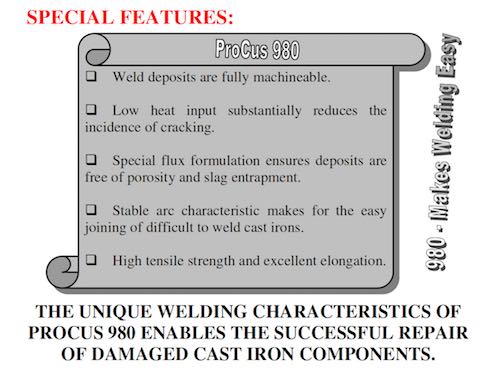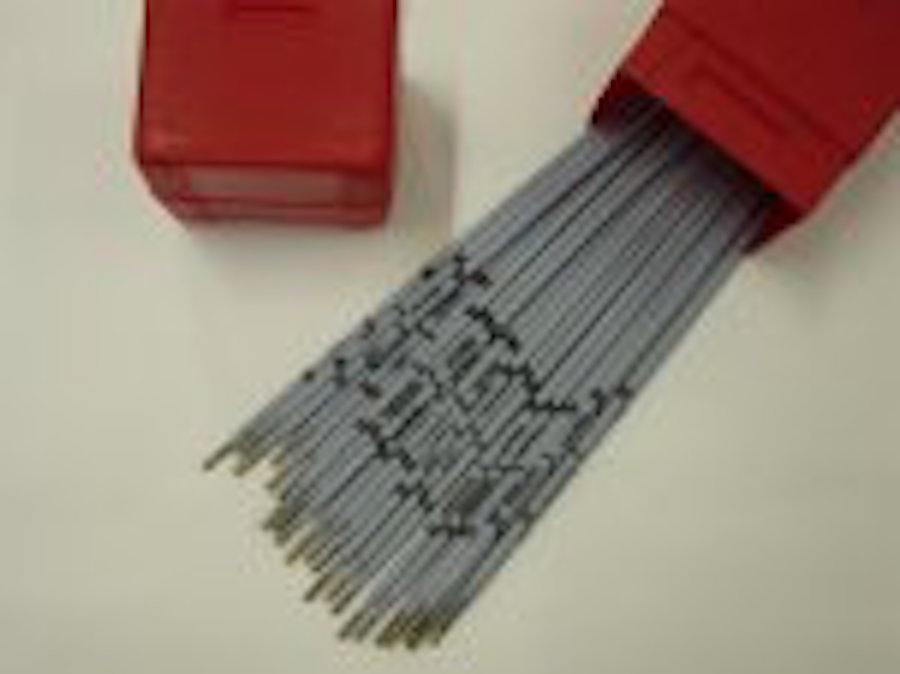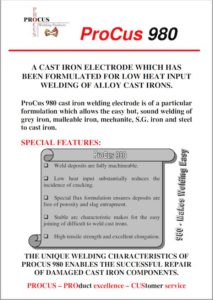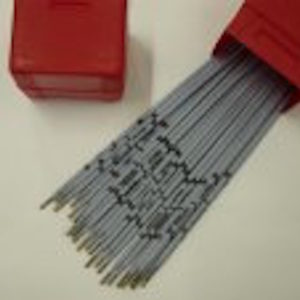Description
A cast iron electrode which has been formulated for low heat input welding of alloy cast irons.
Procus 980 cast iron welding electrode is of a particular formulation which allows the easy but, sound welding of grey iron, malleable iron, meehanite, s.G. Iron and steel to cast iron.
- weld deposits are fully machineable.
- low heat input substantially reduces the incidence of cracking.
- special flux formulation ensures deposits are free of porosity and slag entrapment.
- stable arc characteristic makes for the easy joining of difficult to weld cast irons.
- high tensile strength and excellent elongation.
The unique welding characteristics of procus 980 enables the successful repair of damaged cast iron components.
A specially formulated cast iron electrode designed the simplify the welding of hard to weld alloy cast irons such as ductile iron, grey iron, meehanite, s g iron, malleable iron and steel to cast iron.
Features
 In a general sense, ordinary cast iron welding rods require a higher than desirable amperage to be able to maintain arc stability. Unfortunately, higher than necessary heat input during the welding of cast will lead to excess dilution, probable cracking, and hard spots which will lead to the non-machineability of the weld deposit.
In a general sense, ordinary cast iron welding rods require a higher than desirable amperage to be able to maintain arc stability. Unfortunately, higher than necessary heat input during the welding of cast will lead to excess dilution, probable cracking, and hard spots which will lead to the non-machineability of the weld deposit.
Procus 980 cast iron welding electrode exhibits some very special benefits. The low heat input characteristics of the electrode substantially reduces the incidence of dilution. That means that the problems of hard spots, resulting from the welding process, can be substantially reduced or eliminated, thereby enhancing the machineability of the weld deposit. The smooth arc transfer of the molten weld metal aids easy control of the weld deposit, making the electrode ideal for use in areas of poor accessibility.
Weld metal deposits of procus 980 exhibit good elongation. This means that, as the molten weld begins to cool and solidify, the cooling stresses created are compensated for by the high amount of stretch in the weld metal. This reduces or eliminates the incidence of cracking or the separation of the weld metal from the parent metal. The tensile strength of the weld deposit is up to 200% greater than the pure nickel cast iron rods. This factor is of significant importance, particularly when welding the higher tensile strength irons such as ductile iron, meehanite etc.
Tensile strength – up to 550 mpa (80,000 psi) as welded
Yield strength – up to 410 (60,000) mpa
Elongation in 50 mm (2·0″) = 4% to 12%
Machineability – very good







Reviews
There are no reviews yet.